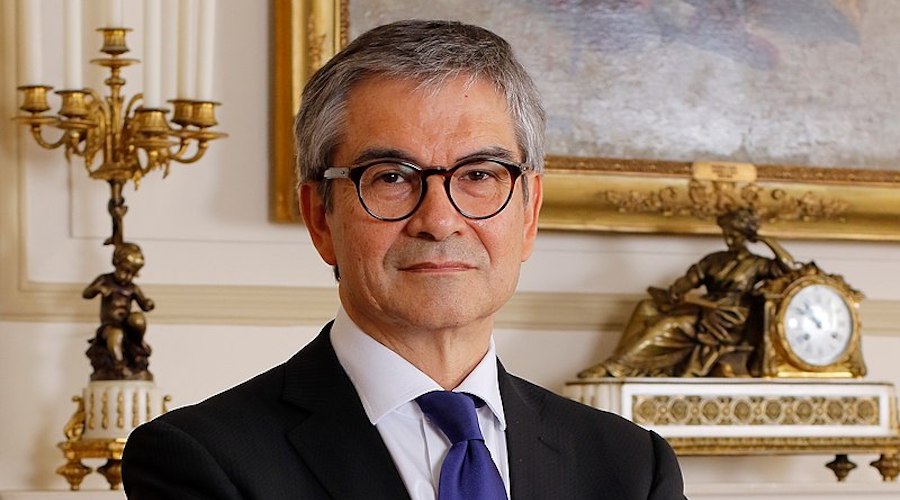Chile hopes SQM-Codelco deal to proceed as planned, finance minister says

Chile’s government indicated that SQM and Codelco will proceed with the signing of a binding lithium partnership by Friday’s self-imposed deadline even as the deal faces mounting headwinds.
“We hope that the agreed deadlines will be met,” Finance Minister Mario Marcel, 64, said Thursday in an interview from New York. “Any agreement of this size does not end simply with the signing of a document. There’s a whole implementation process that continues.”
His comments suggest the two firms have opted to sign documents for a deal that would come into effect next year as they continue to address opposition from an SQM investor and some lawmakers. The arrangement would see Codelco take a majority stake in SQM’s Atacama salt flat assets in exchange for 30 more years of operations. It’s a pillar of Chilean President Gabriel Boric’s agenda to have more state control in key assets while boosting output of the battery metal in the transition away from fossil fuels.
A definitive deal would clear the way for the new public-private partnership to ramp up production from less than 200,000 metric tons toward 300,000 tons, thereby giving battery makers greater assurances on future supplies of a key raw material.
But potential obstacles remain. SQM’s second-largest shareholder, Tianqi Lithium Corp., has been pushing to have the deal go to a stockholder vote, alleging SQM failed to disclose key terms during the negotiation process. The Chinese firm, which has also left the door open to legal action, has endured restrictions to SQM’s sensitive information since buying its 22% stake for $4 billion in 2018.
Some lawmakers from the ruling coalition argue that current boardroom restrictions on SQM’s top shareholder, Julio Ponce, and his immediate family members should also be reflected in the Codelco arrangement. Ponce, the former son-in-law of dictator Augusto Pinochet, was fined in 2014 for illegal trading of shares in his holding companies. Around the same time, SQM was embroiled in a case involving illegal financing of political parties.
Indigenous groups in the area have also criticized the way Codelco and SQM communicated their plans.
A binding contract signed on Friday would ratify a preliminary accord forged between the two firms. The minister declined to comment on the value of the deal, saying an amount would be communicated in the official announcement.
“We are going through stages,” Marcel said. “We had the MOU in December of last year, now it’s a matter of meeting the deadline for signing the definitive agreement and then come all these other implementation issues that involve regulatory, financial requirements, etc.”
Economic growth
An economist trained at University of Cambridge, Marcel and other top officials including central bank Governor Rosanna Costa traveled to Toronto and New York this week to hold meetings with investors and global banks.
Their trip comes at a time of increased optimism on the economy, with domestic growth estimates rising on stronger consumption and higher prices of copper, which is Chile’s top export. At the same time, they are seeking to address concerns over topics including the government’s reform proposals.
The Finance Ministry sold 1.97 trillion Chilean pesos (around $2.15 billion) in social bonds due in April 2033 and October 2040, according to a release late on Thursday.
Chile’s gross domestic product expanded 1.9% in the first quarter, marking the fastest expansion since 2021, according to the central bank. Earlier in May, the government lifted its 2024 growth forecast to 2.7%.
One of the main messages that Chilean officials are bringing to investors is that the domestic economy has been stabilized, Marcel said.
While it takes time for the full impact of higher copper prices to reverberate through the economy, there are more immediate effects such as an improving current account balance and greater income for public coffers, he said.
“The Chilean economy is already in a period of expansion,” Marcel said. “On top of that, you have more favorable situation in the copper market which adds to the growth impulse for 2024 and probably 2025.”
(By Carolina Gonzalez and Matthew Malinowski)
{{ commodity.name }}
{{ post.title }}
{{ post.date }}




Comments